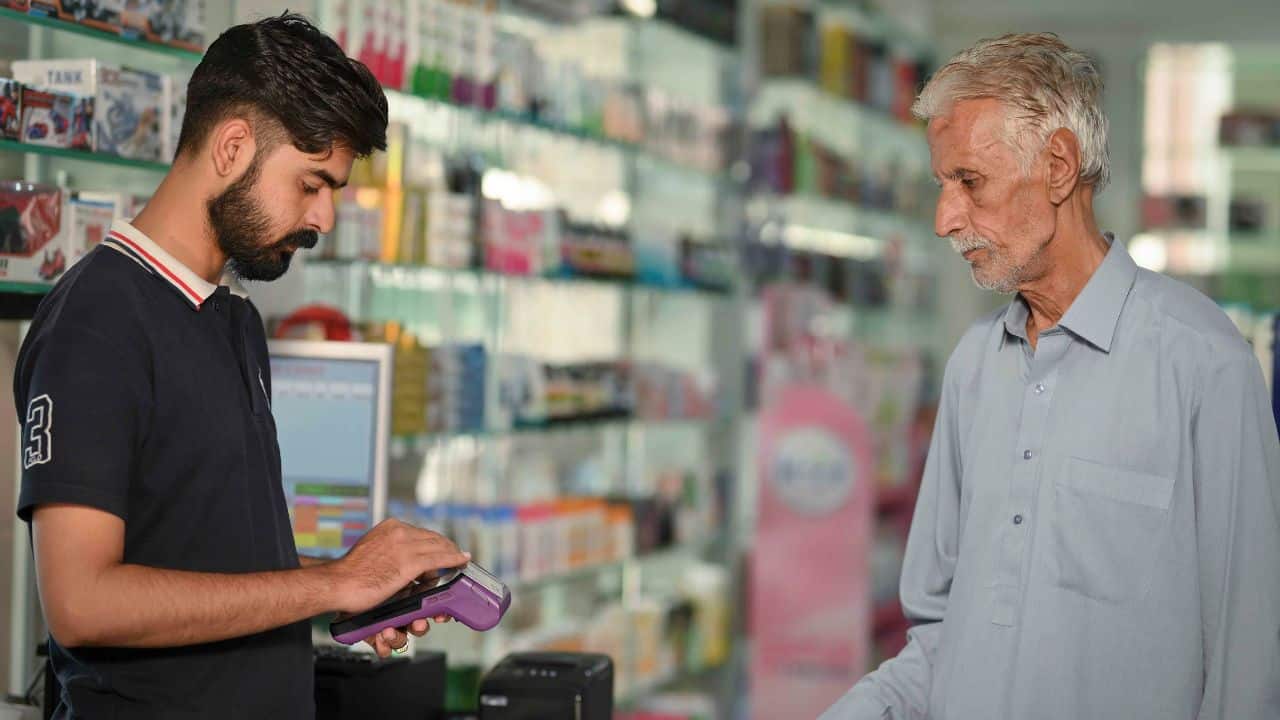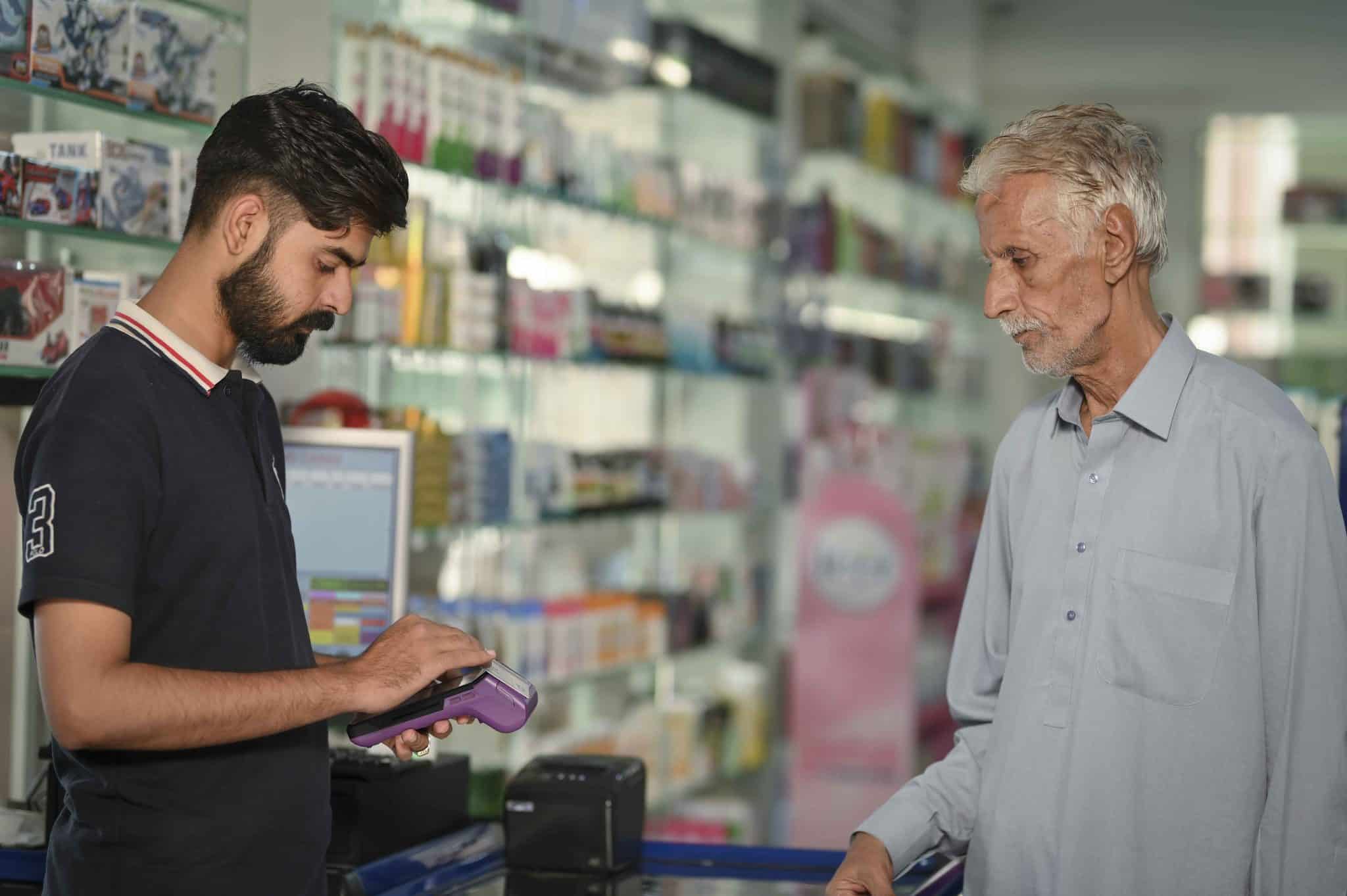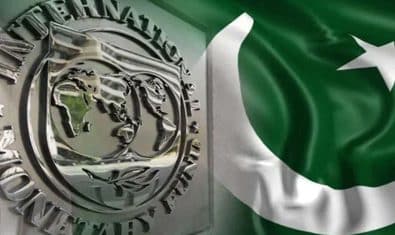Pakistan’s financial landscape is undergoing a seismic shift with the digitization of payments. In a recent interview, Raza Matin, the Pakistan Lead for the United Nations-based Better Than Cash Alliance, sheds light on the nation’s progression toward responsible digital payments, outlining achievements, challenges, and the pivotal role of initiatives like the State Bank of Pakistan’s RAAST program.
The Alliance is a global partnership of governments, companies, and international organizations that accelerate the transition from cash to responsible digital payments to help achieve the Sustainable Development Goals.
Raza defines digitization of payments as the transfer of value through digital channels, including mobile money, QR (Quick Response) codes, and cards. Pakistan, with a population of 240 million, has advanced in digital financial inclusion, especially during the COVID-19 pandemic. Increased mobile phone and internet access have been catalysts for this adoption.
While urban areas witness widespread use of mobile wallets and point-of-sale (POS) machines, challenges persist. Notably, gender disparities in financial inclusion, the digital divide, and the prevalence of cash in smaller and informal businesses hinder the transition to digital payments.
Comparatively, many countries, including Brazil, China, Indonesia, and India, have made significant advancements in the adoption of digital payments, particularly in person-to-person and person-to-merchant transactions. However, challenges remain in person-to-merchant payments and broader business acceptance. Raza stressed the importance of addressing these challenges to ensure inclusive and equitable financial access, with a special focus on women.
Raza emphasizes that digital payments are pivotal for financial inclusion, driving both demand and supply for digital money. This shift reduces reliance on physical cash, encouraging more conversions to digital forms like bank accounts and wallets.
The growth in digital deposits enables financial service providers (FSPs) to expand their lending, making credit more accessible to both businesses and individuals. For businesses, especially smaller ones, gaining access to credit allows them to invest in inventory, enhance production capacity, and improve process efficiencies, resulting in greater income and increased productivity.
Raza highlights challenges such as affordability and awareness in an Alliance’s new report, emphasizing the need for policy reforms to prioritize digital payments at the government level. “Digital payments are not priced to be accessible for all businesses,” he remarked, pointing out that some businesses, particularly those with thin margins, find the current pricing unaffordable.
To address these challenges, Raza highlighted the Alliance’s report’s significance in introducing policy reforms, emphasizing the need to prioritize digital payments at the highest levels of government, foster alignment among stakeholders on long-term goals, and launch a comprehensive campaign to promote the benefits of widespread digitization of the economy. These recommendations align with the commitment to inclusive and equitable financial access, particularly for women, echoing the UN Principles for Responsible Digital Payments.
The success of the State Bank of Pakistan’s RAAST program, according to Raza, extends beyond infrastructure, requiring governance, communication strategies, and fair pricing. Its potential to become a fundamental part of Pakistan’s daily life is promising.
Raza also underscored the importance of financial literacy programs and their role in fostering the acceptance of digital payments, especially among merchants. Stressing the need for it to be a collective effort, industry and regulator-driven educational initiatives aim to enhance merchants’ understanding of digital payments. “It’s unrealistic to expect an expansion in merchant acceptance of digital payments if merchants lack an understanding of, or hold reservations about, the use of digital payments and their implications,” he asserted. Industry-led educational efforts are imperative.
Raza acknowledges the recent in-principle approval of five digital banks by the State Bank of Pakistan, potentially leading to increased competition and innovation within Pakistan’s financial sector. There is a focus on advocating for adherence to interoperability mandates to promote consumer choice in responsible digital payments. The alliance supports healthy competition and innovation that serves the best interests of users.
Raza highlights the potential impact of national digital payment adoption by 2025, projecting a 7% GDP boost, four million job creations, and an additional USD 263 billion in deposits, as cited in the Alliance’s report, referencing data from the National Payments System Strategy of Pakistan. This emphasizes the vast economic benefits of promoting responsible digital payments in Pakistan.


























The major blocker in digital payments are the documentation required to get the POS machine. Second we still lack the easiest approach to use the QR code for payment purposes. Small and large service providers totally lack the customer support just in case payment stuck which lost the consumer and merchant trust from years.